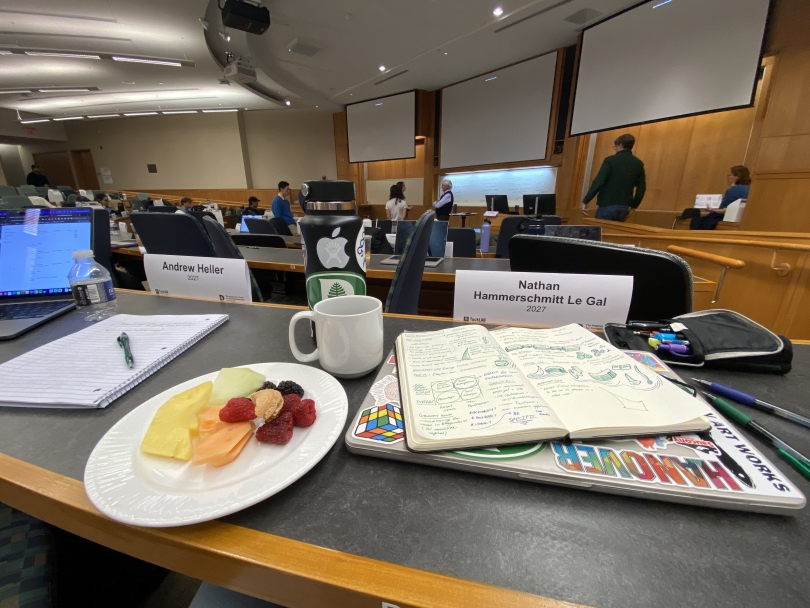
An Environment of Learning
While classes offer opportunities to explore content and deeply engage with a topic, I've found they aren't the be-all and end-all of college learning. During my first few terms at Dartmouth, I felt overwhelmed by the array of courses available. I envisioned myself pursuing a dozen different career paths, and each course seemed like a gateway to one of them. Furthermore, many of the most interesting courses felt like unique opportunities to study something I might never encounter in the long term (such as taking a classical archaeology or philosophy course as a non-major).
Luckily, Dartmouth has "distributive" requirements that prompt students to take courses outside of their major—but as a first-year student, it wasn't immediately clear to me how to balance breadth and depth.
What I've since realized is that, while academics form the core of learning at Dartmouth, the effort I put into my engagements outside the classroom can be just as important (and sometimes even more important) than the time spent inside it. I've found several programs and opportunities that offer a greater depth of immersion and personal growth than what's outlined in the syllabus of any given course.
Co-curricular opportunities at Dartmouth provide myriad ways to sharpen your mind and practical skills beyond the classroom. Last year, I completed the Great Issues Scholars (GIS) Program, which introduced me to guest speakers in international security, climate change, and global health. Despite being STEM-focused and taking completely unrelated classes, I was able to participate and glean insights from leaders tackling global challenges. This term, I participated in a Venture Capital (VC) Workshop Series, which exposed me to the world of VC investing (read all about it here). I've also completed the TuckLab Entrepreneurship Program, which sparked my interest in startups, and I plan to complete the Tuck Business Bridge Program later this year. If I tallied up all the programming I've accessed and completed alongside my course load, it would likely amount to an additional three classes or so! (without the added strain).

Beyond these more structured forms of non-classroom learning, I've also discovered more fun and low-commitment ways to engage with new ideas: checking out random interesting books from Baker-Berry Library, visiting the Cable Maker Space to try new tools, completing a book arts workshop, and even attending public guest lectures hosted by the Rockefeller Center or presentations by resident artists in the Studio Art Department.
Lastly, I'd like to note that pursuing these additional opportunities has taught me how to organize my priorities and manage my time. The possibilities at Dartmouth can genuinely feel endless, and the path is no longer clearly laid out. With each term flying by in only 10 weeks, it can be challenging to explore everything you want to—but I've learned that what truly gets done is what you make time for. If no time is set aside, something else will inevitably take its place. This has prompted me to reflect more deeply on my priorities, helping me grow into someone more intentional with their short-term and long-term decisions.
So yes, classes are important, but the learning environment at Dartmouth offers so much more!

















